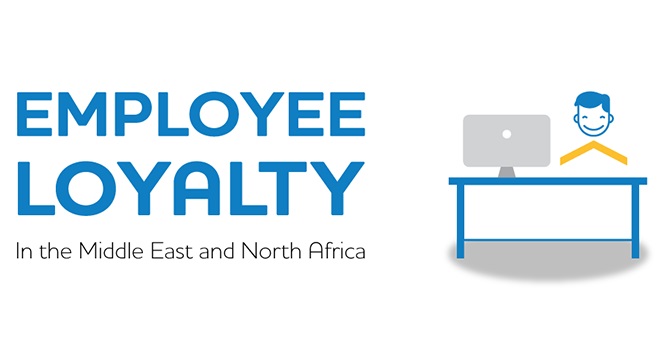
One of the most important indicators of healthy employees and work environments is employee loyalty. Employee loyalty affects performance and it often correlates with the passion and satisfaction levels of employees towards their job and company. Not only does high employee loyalty translate to high productivity, but it also reassures employers that their work environment is of a high caliber.
Employee loyalty is mistakenly measured through the number of years spent at said company. But loyalty is not the same as retention. The Bayt.com Poll, “Employee Loyalty in the Middle East and North Africa”, revealed that out of all the signs of high employee loyalty, the number of years spent with the same company is the least commonly cited one. The poll explores the different indicators and benefits of employee loyalty as well as what companies and managers can do to promote it.
1. What is employee loyalty?
With a mere 11.1% of professionals associating the number of years at a company with loyalty, it comes as no surprise that employee loyalty means much more than that. A third of employees regard confidentiality, even after resignation, as the most vital factor for being loyal. 30.3% think of loyalty as being dedicated and abiding by the rules and values. The rest (25.3%) of professionals define loyalty as taking initiative and promoting the company’s vision.
2. What are the benefits of employee loyalty?
The general consensus among respondents (88.9%) is that loyalty contributes extensively to the productivity of the company and towards achieving its goals, making it very beneficial. Some of the benefits of employee loyalty that respondents agree on include higher efficiency and productivity (32.1%) and strengthening team relationships (30.8%). A quarter of respondents feel that loyalty provides employee satisfaction, and 6.2% suggest that loyalty leads to lower turnover, which in turn means lower costs spent on the hiring process.
3. What influences employee loyalty?
Employee loyalty is highly valued by employers. 83.2% of poll takers say that the office is an important factor for fostering loyalty, while 38.2% revealed that the lack of career growth causes serious damage to employee loyalty.
According to the poll, 28% of respondents feel that loyalty depends on salary. Others (19.2%) disclosed that loyalty is more dependent on being rewarded – compensations and benefits. Top management has also been listed for its impact on loyalty by 19.1% of respondents, whereas 17.4% believe it’s all about the team members and the people they work with.
4. How can companies promote loyalty?
Employees have certain expectations from their companies that would in turn enhance their loyalty. Fairness in treatment was named the most popular choice by 22.4% of respondents, followed by wanting credit and rewards for their achievements by 21.9% of respondents. 18.1% look for a company that helps them balance between work and life, and 14.5% believe in strong relationships with the company and other employees.
5. How can direct managers improve loyalty?
Employees want to feel that they matter. 40.7% of respondents think that a direct manager should listen and align employee goals with company goals. 27.5% want managers to help them understand the company’s mission and values. 23.9% care about strengthening their relationships in hopes of enhancing loyalty.
Click here to view the full infographic.